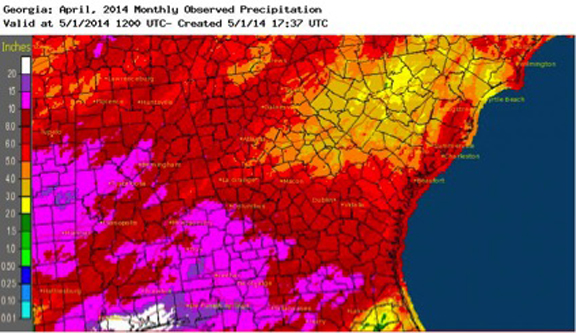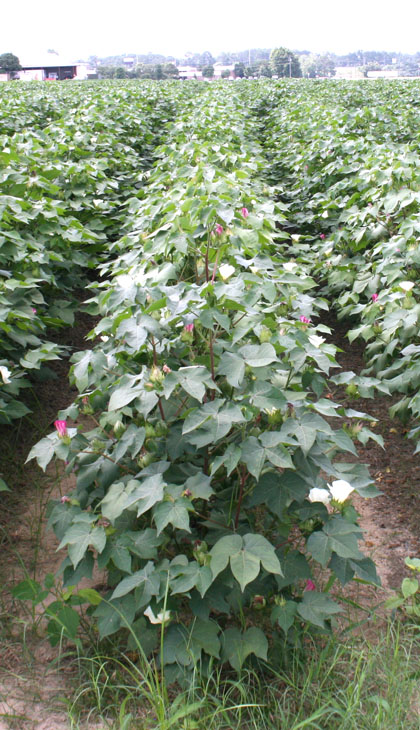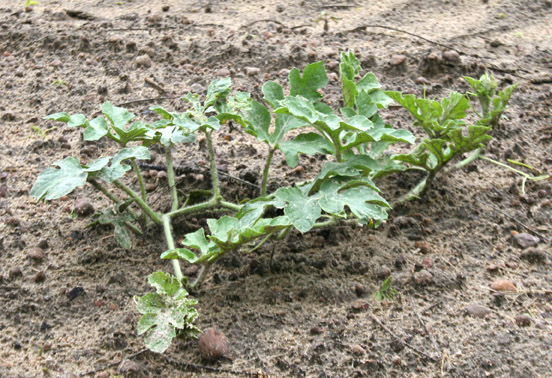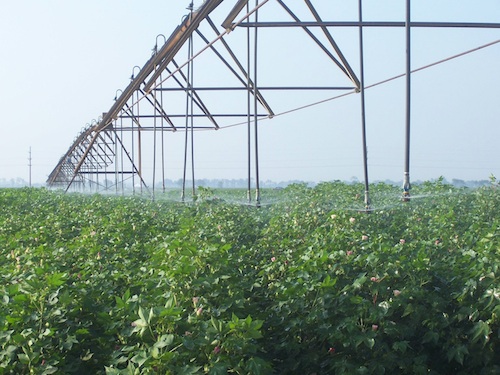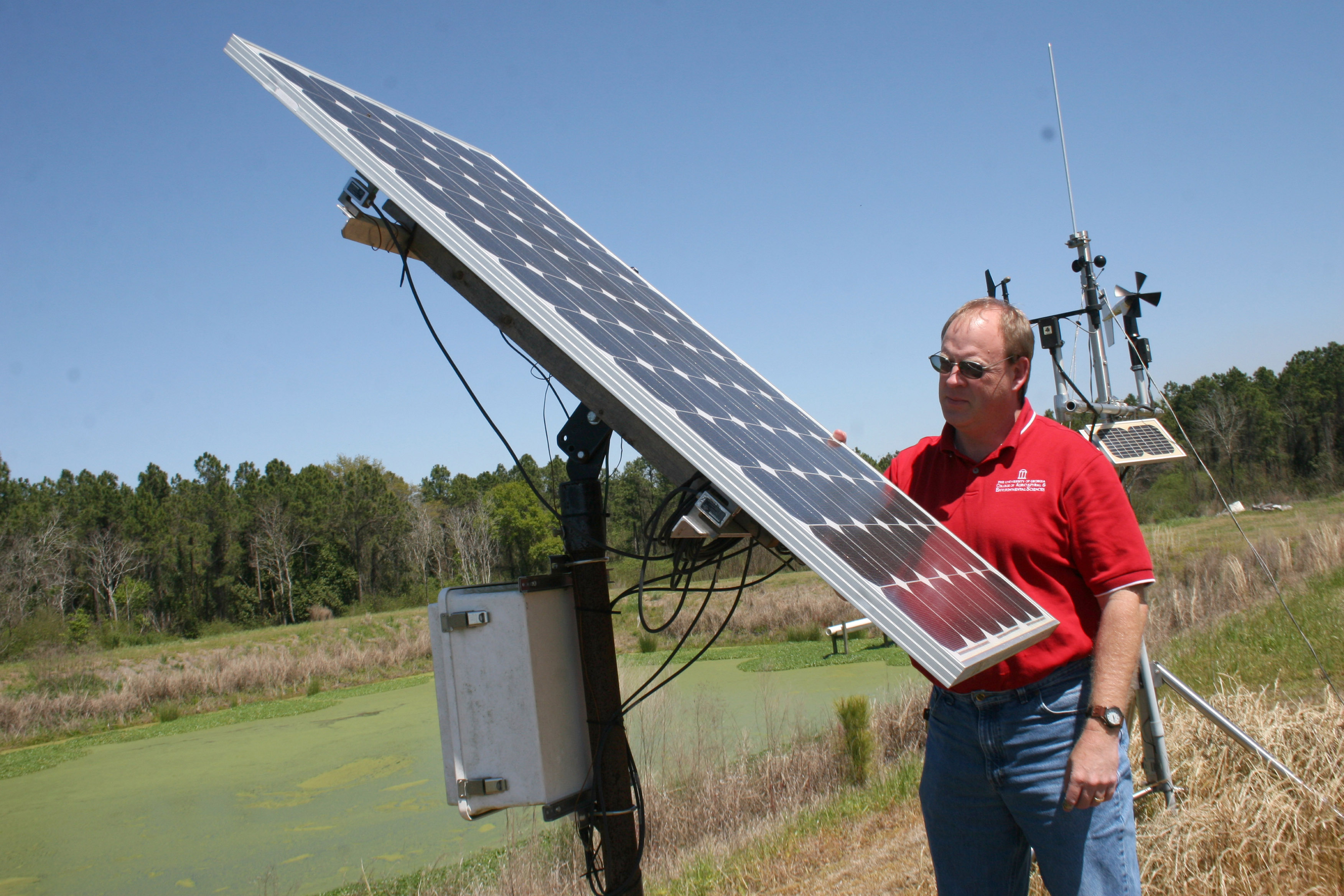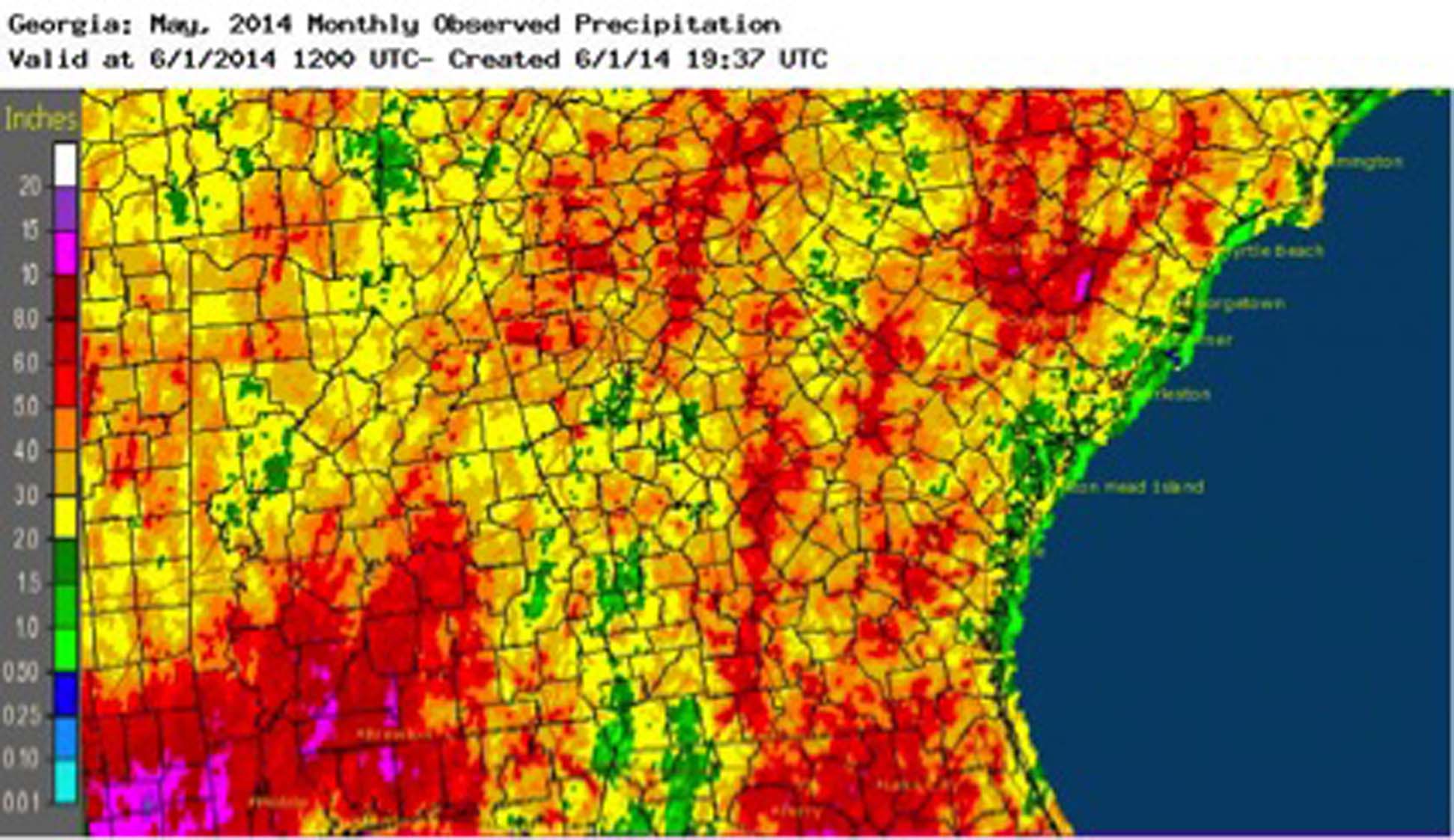 CAES News
CAES News
May 2014 Climate
May was a near-average month for both temperature and precipitation across the state. While some areas saw heavy downpours associated with springtime thunderstorms, the relatively drier conditions allowed farmers to finish working in their fields and planting after the wet spring.

